With high stakes in the air this election season, celebrity announcements of support for a campaign and candidate have become expected. Endorsements are more relevant than ever.
Of celebrity endorsements in recent weeks, Elon Musk’s full-force support of Donald Trump has centered many headlines. The 53-year-old billionaire has joined the former president on stage at several rallies and even offered to give away $1,000,000 a day to registered voters who join his campaign group. Though Musk has generally swung across the political spectrum in the past, supporting Forward Party presidential candidate Andrew Yang in 2020, his firm support in-person and on X has highlighted a clear strategy of the Republican party.
Elon Musk represents the conservative ideal: wealthy, middle-aged businessman. At the ballot box, right-wing voters can see a piece of themselves in him, while simultaneously aspiring to be him. They associate his success with the party and Trump policies. Musk’s support, backed by his wealth, furthers what 81% of voters say is the most important issue this election and Trump’s strongest platform: the economy. 55% of voters are confident in Trump to make good economic decisions.
Similarly, Taylor Swift has also made headlines with her endorsement on Instagram of Kamala Harris. Swift endorsed Biden early in 2020, but stayed silent on this election until recently. Many suspect this was a brand move to avoid association with Biden’s poor public image. She has made efforts in the past to speak out against sexism in the media, but has generally strayed away from more polarizing issues. Many on the left have criticized her brand-centric performative feminism, but this bland activism may help Democrats out in the long term.
A less polarizing political lens allows Swift to maintain her somewhat-moderate, clean image. Swift represents a prevalent liberal viewpoint: a strong millennial woman who is quirky but earnest. She is an icon for young women, able to balance passion and progressive values outside of just her music, but not all celebrities are content with following the mainstream.
Ye, formerly Kanye West, has confirmed his wavering support for Donald Trump. When asked about the 2024 election — at an airport, not a rally — Ye answered, “Yeah, of course, it’s Trump all day.”
It’s important to understand the difference in the campaigns’ response to this endorsement, or the lack thereof. With both campaigns working to appeal to centrist voters, Ye’s controversy-ridden track record isn’t what the Trump/Vance ticket needs. Vance himself has been working around the clock to shift public perception of the former president.
Ye is polarization at its finest. To liberals, he represents the menacing reactionary voter, the threat to democracy that Trump is trying to distance himself from. Reactionary, also called far-right, individuals want to return to an ideal far in the past, and will use violent methods to get there. Between erratic social media outbreaks and his extreme anti-semitic comments, Ye’s actions have real life consequences in a way that is undeniably dangerous to ignore. He normalizes hate speech and racist rhetoric to his impressionable young fans and in the media generally. His ability to evade consequence sends the message that his behavior is acceptable. This influence may even support hate speech at Enloe, as just three years ago anti-semitic comments were made by a student over the intercom.
On the other side of the spectrum, the rising star Chapell Roan was hounded for her endorsement, considering the fact that she has always been politically active and vocal about her views and grievances. The media was surprised when she never endorsed the Harris campaign formally.
Roan represents a radical voter well: dramatic, queer, out of the ordinary and extremely opinionated. She holds the key to young people; her voice alone can sway a large portion of liberals who might not be satisfied with Harris’ centrist leaning platform. Roan met the public’s nagging for her official endorsement of a campaign with an enraged TikTok denying a true endorsement, but letting it slip that she was, in fact, voting for Harris.
Roan was quoted refusing to back the entirety of the campaign, announcing the parts of Harris’ policy she disagreed with. She let her fanbase of young and distraught voters, some of which probably plan on not voting at all, know that in her opinion, there are “issues on both sides.” In saying this, she equivocates Harris’ and Trump’s policy issues, thus downplaying the threat of restrictions on the rights of herself and her community. It’s like equating a fly to a hornet: both are annoying, but one is clearly more dangerous.
In a perfect world, celebrities’ endorsements would be irrelevant to the political climate and no artist or actor would bear a responsibility to sway the public’s opinion; however, the 2024 election has unprecedented stakes. This year’s election comes at a time where polarization is high and many are at risk of having their rights stripped. Though Chappell Roan’s attempts at a nuanced conversation were well intentioned, she likely underestimates the impact that her words have on the media portrayal of the Harris campaign, if not the entire election. Roan has a strong track record of supporting liberal policy and politicians, but her refusal to fully endorse Harris breaks this. This deflection, and its political implications, put Roan and her community at risk. Celebrity endorsements, as performative as they can be, have a genuine impact that can’t be ignored, especially when the rights and livelihoods of so many communities are on the line.


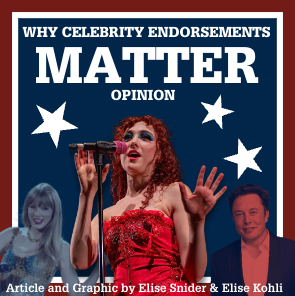

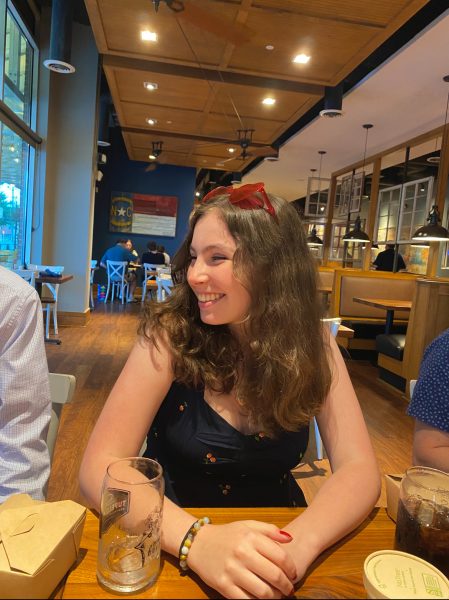

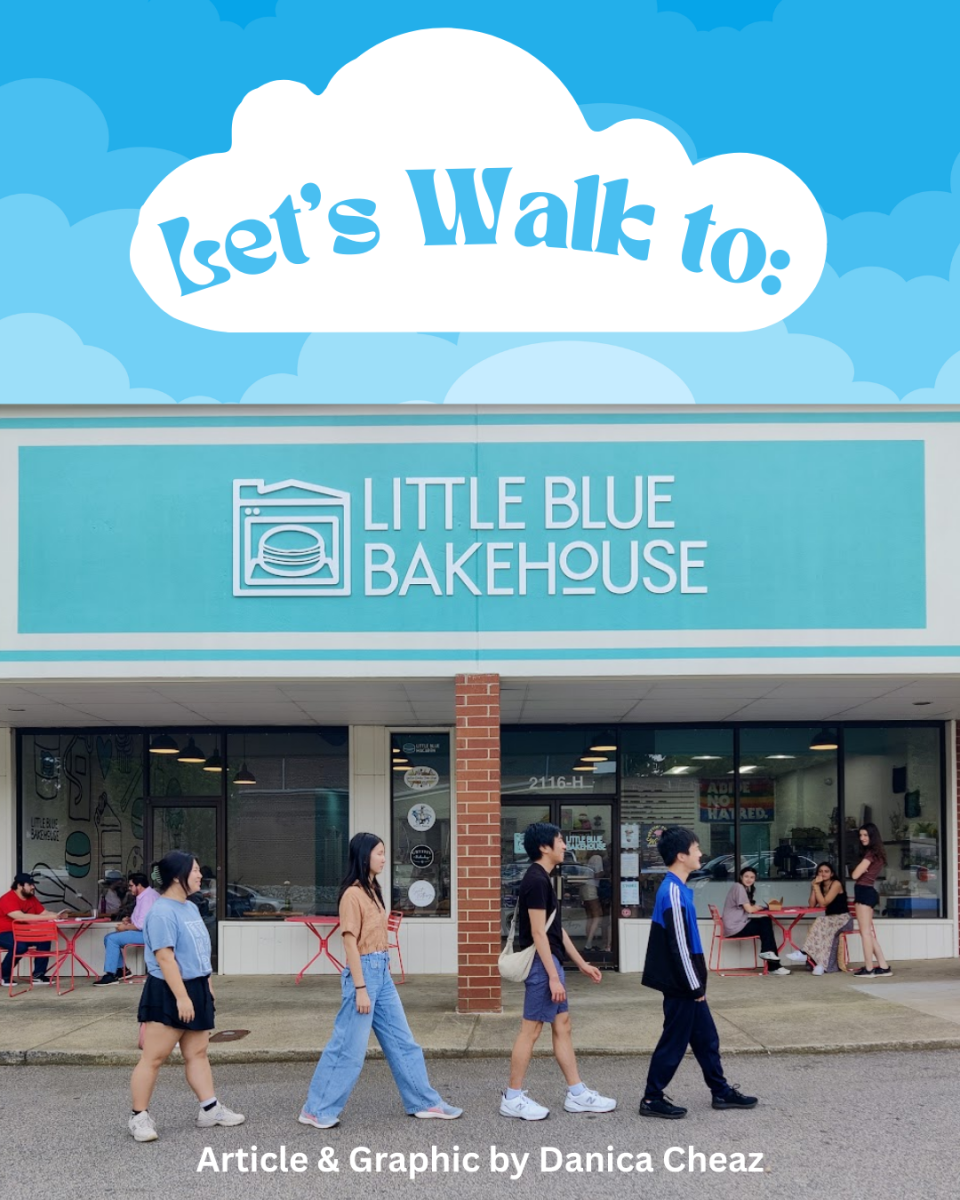
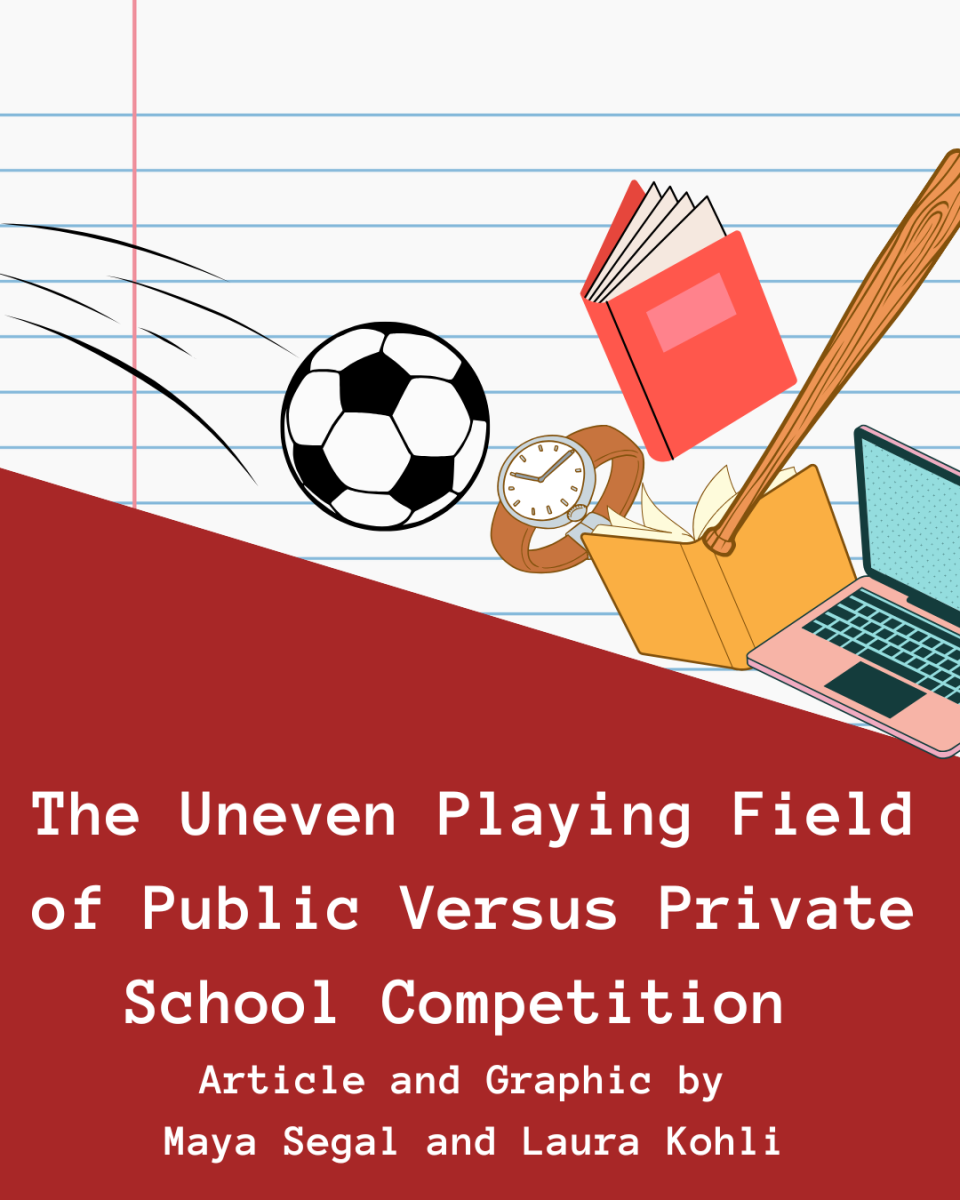
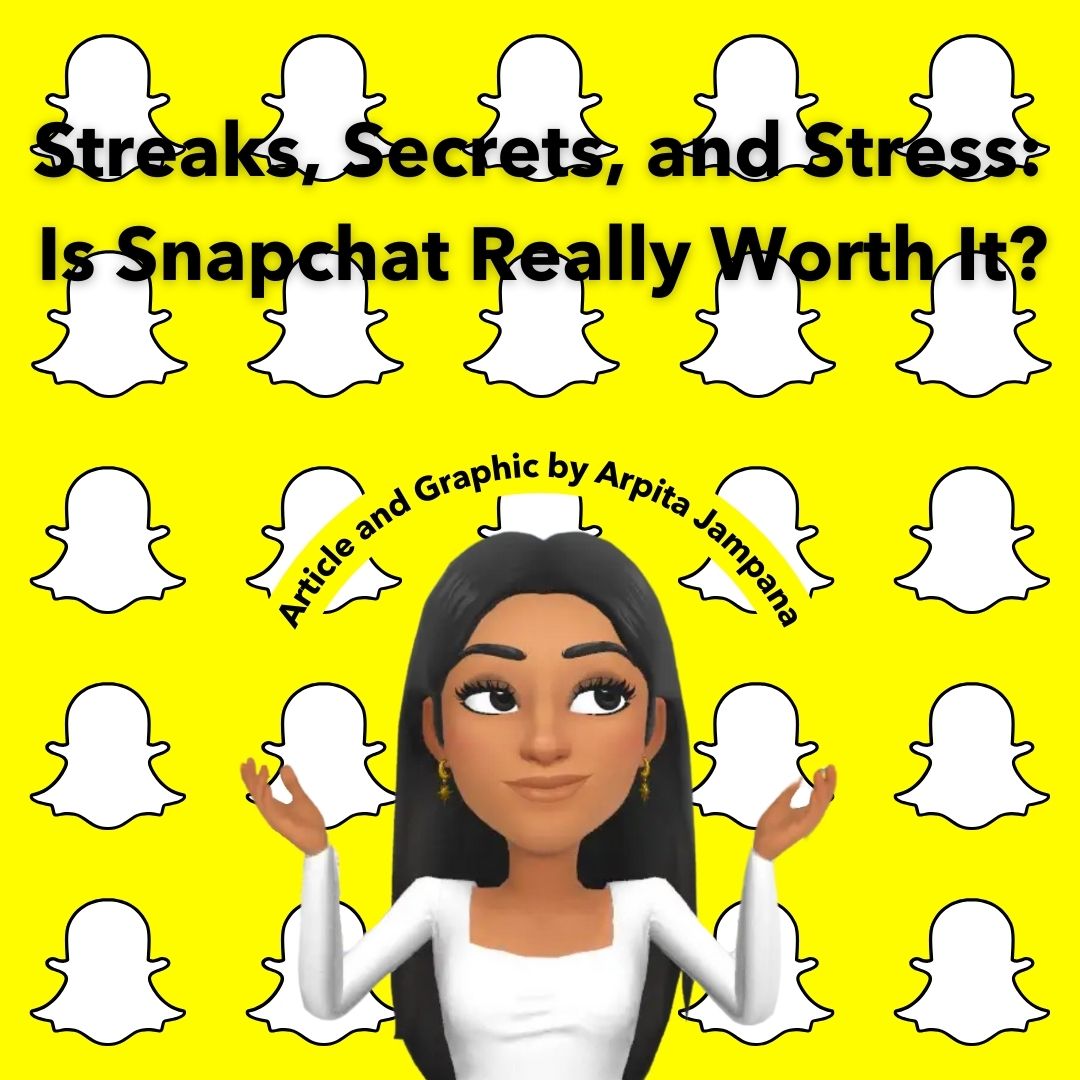


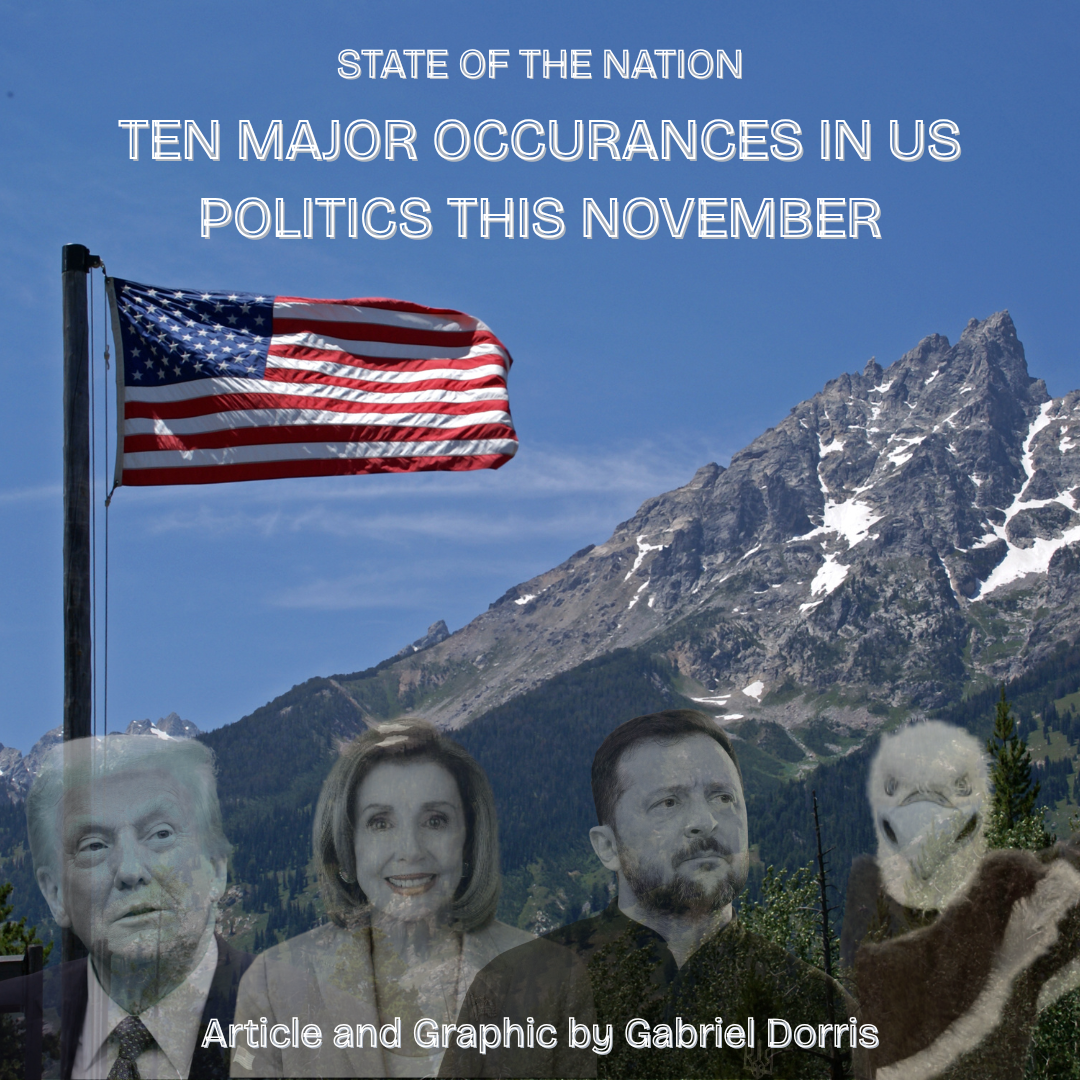
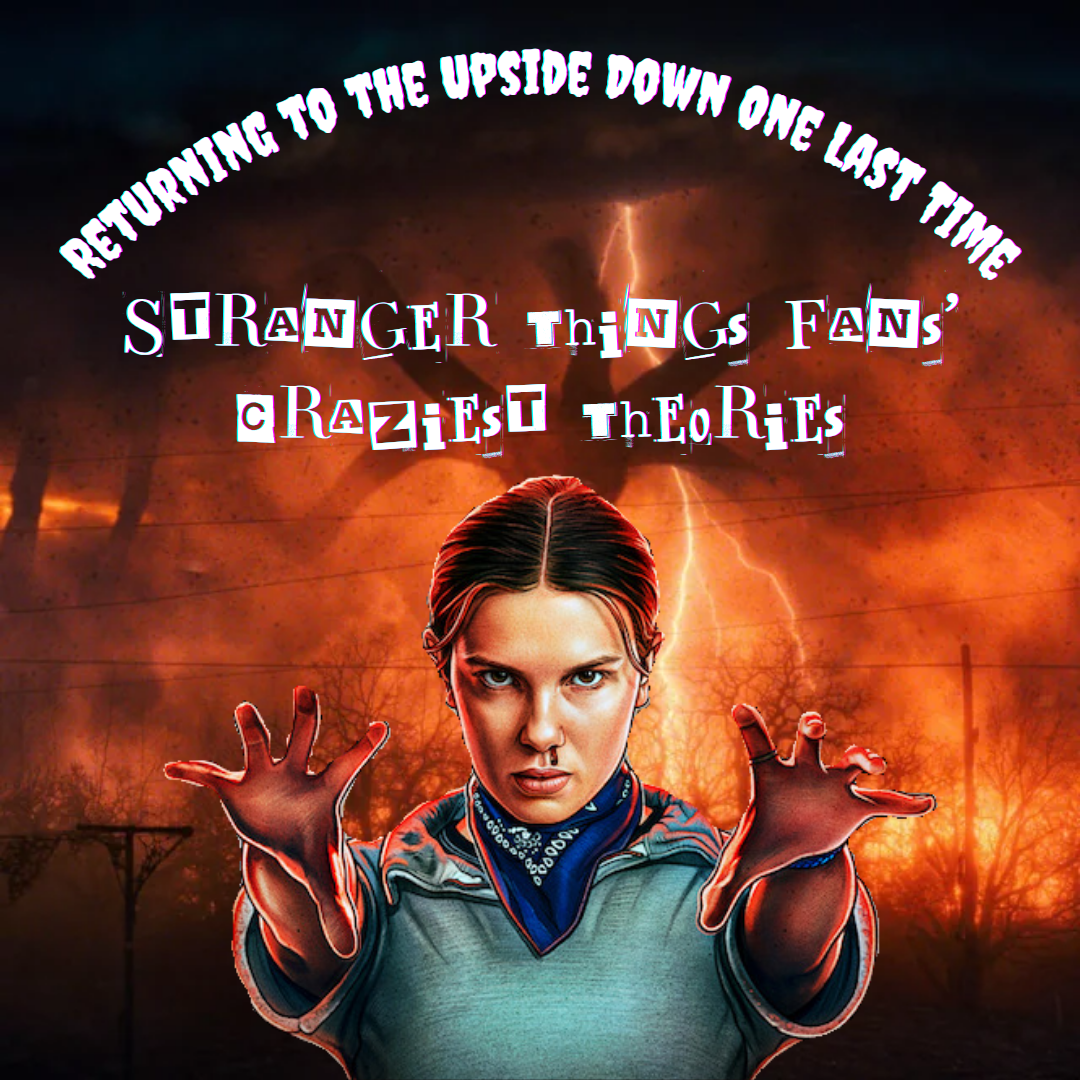
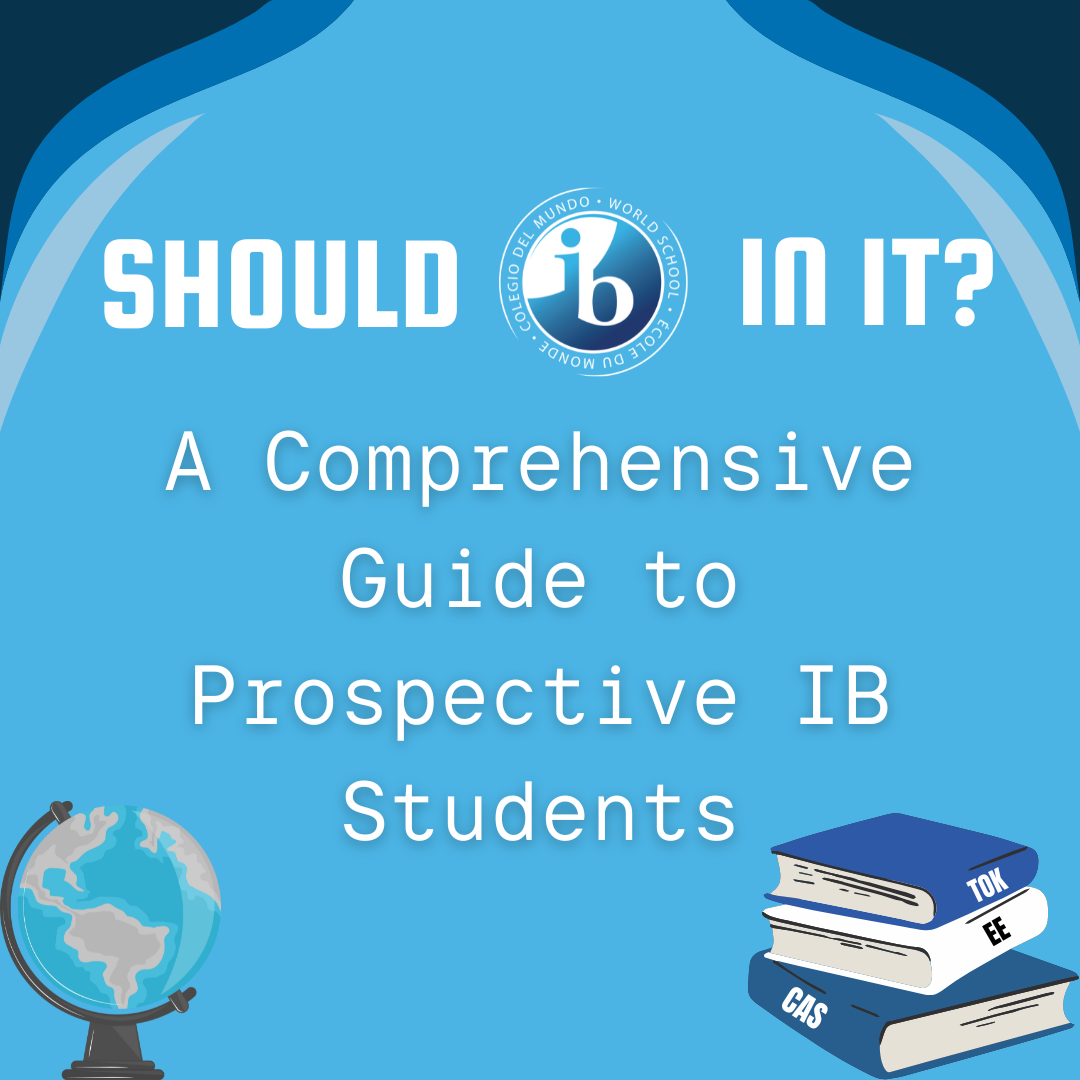
Dashiell Moyers • Jan 19, 2025 at 6:52 PM
I would agree to a certain extent, however it is important to point out why Chappell wouldn’t endorse Harris. I feel like this article really glosses over that fact. Kanye West is a contrarian and always has been. He doesn’t necessarily have any platforms, he just wants to be seen as transgressive and different. However, Chappell Roan has platforms that she stands on. She clarified that she wouldn’t be endorsing Harris fully because of her unflinching support for the genocide occurring in Palestine. Criticizing her for not endorsing is essentially denying the fact that celebrities are people that can have critical thinking skills. Also, as a queer person, I would agree that my community is under direct threat now that Trump is in office. However, we’re not the only people that will be affected. Again, I find myself pointing to the genocide in Palestine, which regardless of the President we find ourselves under, would still be happening had the recent ceasefire deal not been made. It’s a very individualist way of thinking about things when we as queer people only got to where we are through collective organizing and embracing intersectionality. While I know that isn’t the point of the article, I can’t help but ignore how it seems like this article throws intersectionality and collectivism to the side. However, it was a very interesting read. I hope this comment gave you something to think about, even if you don’t agree!